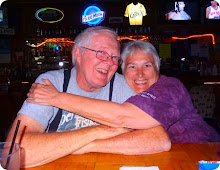Maryland State Monument
Visiting this battlefield is a very sobering experience. It was the bloodiest one day battle of the American Civil War with over 23,000 Americans dead, injured, or missing.
We started at the Visitor’s Center and they have a very informative movie discussing the battle. Then they give you a map of the driving tour through the battlefield. They also offer tour guides for a walking tour.
(The Saturday we were there was a free admissions day and the park was extremely busy.)
General Robert E. Lee decided in 1862 to lead his troops out of Virginia and into Maryland and Pennsylvania. He first needed to capture the Armory at Harpers Ferry and Lee divided his army with one command by General James Longstreet and another company under General Stonewall Jackson.

Dunker Church was a pacifist German Baptist Brethren church that was the focal point of Union attacks.
The 12 hour battle at Antietam Creek began at dawn on September 17.
From 6 a.m. to 10 a.m. the battle raged in the Corrnfield, East Woods, and West Woods.
This is the start of the Union army’s path through the cornfields.
By late morning the fighting shifted toward the Confederate center (Sunken Road) in a three hour stalemate that left the road forever known as “Bloody Lane”.
Jim and Linda practiced their synchronized dog walking.
General Ambrose Burnside moved his men across the bridge over Antietam Creek. The battle ended about 6 p.m.
Clara Barton at Antietam
This is rather long but I found it fascinating reading.

Then Miss Barton got down to work. As bullets whizzed overhead and artillery boomed in the distance, Miss Barton cradled the heads of suffering soldiers, prepared food for them in a local farm house, and brought water to the wounded men. As she knelt down to give one man a drink, she felt her sleeve quiver. She looked down, noticed a bullet hole in her sleeve, and then discovered that the bullet had killed the man she was helping.
Undaunted, the unlikely figure in her bonnet, red bow and dark skirt moved on—and on, and on. Working non-stop until dark, Miss Barton comforted the men and assisted the surgeons with their work. When night fell, the surgeons were stymied again—this time by lack of light. But Miss Barton produced some lanterns from her wagon of supplies, and the thankful doctors went back to work.
Miss Barton's timely arrival at the battlefield was no easy task. Only the day before, her wagon was mired near the back of the army's massive supply line. Prodded by Miss Barton, her teamsters drove the mules all night to get closer to the front of the line.
Within a few days after the battle, the Confederates had retreated and wagons of extra medical supplies were rolling into Sharpsburg. Miss Barton collapsed from lack of sleep and a budding case of typhoid fever. She returned to Washington lying in a wagon, exhausted and delirious. She soon regained her strength and returned to the battlefields of the Civil War.












So sad all the lives that are lost in battle. I guess we haven't learned a lot.
ReplyDeleteEvery war is bad but this one was the worst. Senseless.
ReplyDeleteWe just binge watched The Civil War by Ken Burns on Netflix. If you haven't watched it, I recommend it.
That is an interesting story. I always find it so amazing that we ever had such a bloody war here in our country.
ReplyDeleteGreat post. Been past this battlefield many times but haven't visited (yet).
ReplyDeleteThat's one place we visited more than once. It's really changed over the years.
ReplyDeleteWe've been to Antietam ---and it is a sobering experience. I found myself very teary when we were there.... So SAD.....
ReplyDeleteHope you all are doing well..
Hugs,
Betsy
I love visiting battlefields. I understand our history so much better and appreciate is way more.
ReplyDeleteVery interesting post, Sandie. I've read about Clara Barton before. She was quite a woman. As a lover of history, I hope you and Jim have a chance to visit Andersonville while down this way--it's probably on your route home, and great State Parks not far away.
ReplyDeleteHoping our cooler weather holds for you. Pats to the pups.
My sister and BIL live in Sharpsburg right on the Potomac. It is a lovely area. Very historically significant. We stay there at least once a year on our way or back from the south.
ReplyDeleteI have visited Antietam many times in the 1990's, and I think it is one of the saddest places I've ever been. I "walked the battle" and all of the sudden found myself in the dark woods. Really eerie.
ReplyDeleteThank you for all the history you have shared with this post. Ms Barton was and awesome lady and feared nothing.
ReplyDeleteSeeing those monuments and your words gave me goosebumps...
ReplyDelete